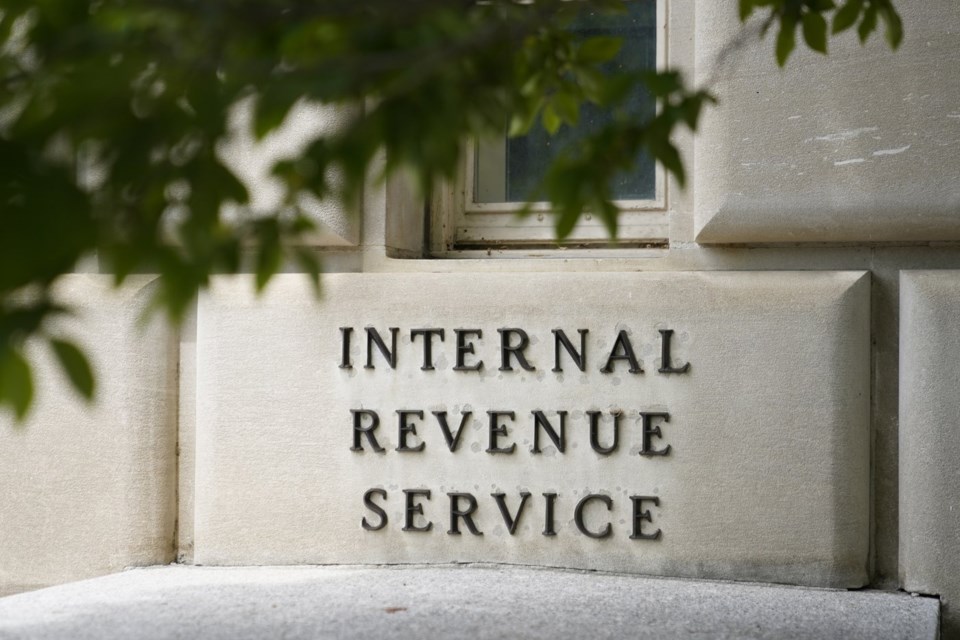WASHINGTON (AP) вҖ” The budget bill championed by President could complicate next year's tax filing season after the IRS lost one-quarter of its employees through staffing cuts, an reported Wednesday.
The IRS workforce has fallen from 102,113 workers to 75,702 over the past year, according to the latest report to Congress. The report Wednesday offered the first official numbers on the IRS job losses associated with Elon MuskвҖҷs Department of Government Efficiency.
Most of the employees took the вҖңfork in the road" resignation offer from DOGE rather than waiting to get laid off.
Some of the findings from the report:
Taxpayers will likely see effects of staffing reductions
The Trump administration's efforts to to a mass exodus of probationary employees who had not yet gained civil service protections and were offered buyouts through a вҖңdeferred resignation program.вҖқ More than 17,500 IRS workers took that route. The biggest cuts were in taxpayer services, the small business/self-employed office and information technology.
The report noted that the Republican administration's proposed budget includes a 20% reduction in IRS funding next year. That's a 37% reduction when taking into account the supplemental funding in the Biden-era Inflation Reduction Act that Republicans previously stripped away.
вҖңA reduction of that magnitude is likely to impact taxpayers and potentially the revenue collected," wrote Erin M. Collins, who leads the organization assigned to protect taxpayersвҖҷ rights.
The 2026 tax season could be precarious
Collins said the 2025 filing season was вҖңone of the most successful filing seasons in recent memory,вҖқ though she warned that the 2026 season could be rocky.
вҖңWith the IRS workforce reduced by 26% and significant tax law changes on the horizon, there are risks to next yearвҖҷs filing season,вҖқ Collins wrote. "It is critical that the IRS begin to take steps now to prepare.вҖқ
She said that, halfway through the year, there were concerns that the IRS had not yet undertaken key preparation steps, including hiring and training seasonal and permanent employees.
Trump's package could add new layer of problems
The report warned about the possibility of understaffing to manage new provisions from Trump's legislative package if it's enacted.
вҖңSeveral provisions will retroactively affect the 2025 tax year, thus impacting millions of taxpayers and requiring the IRS to quickly update tax year 2025 tax forms and programming for the 2026 filing season," the report said.
Specifically, the House bill retroactively prohibits the IRS from allowing or making payment of Employee Retention Credit claims filed after Jan. 31, 2024.
The report also said the IRS historically receives more calls in years following significant changes in tax law, so it may need additional employees and improved digital tools to maintain its level of service.
Identity theft cases are still piling up
The IRS is dealing with delays in resolving self-reported identity theft victim assistance cases вҖ” taking up to 20 months to resolve, the report said.
As of the end of the 2025 filing season, the IRS was handling about 387,000 of these cases.
That is a slight improvement from the more than 22 months it took to resolve identity theft cases, as noted in last year's report, which outlined roughly 500,000 unresolved cases in its inventory.
вҖңThe cycle time remains unacceptably long," Collins said. вҖңI continue to urge the agency to focus on dramatically shortening the time it takesвҖқ to resolved identity theft cases, "so it does not force victims, particularly those dependent on their tax refunds, to wait nearly two years to receive their money.вҖқ
Fatima Hussein, The Associated Press



